Last updated on December 29, 2023
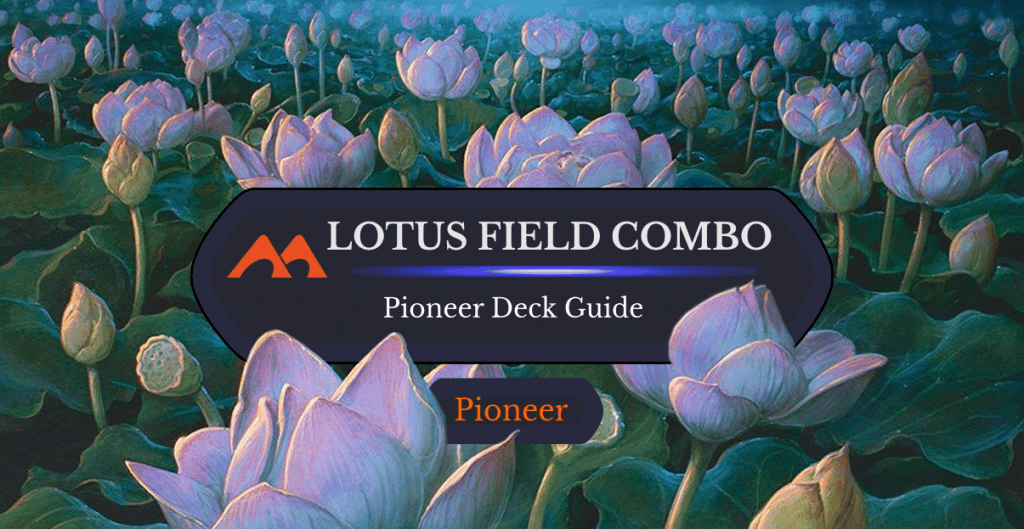
Lotus Field | Illustration by John Avon
Pioneer has gone through a few changes since its inception. The last few sets of bans heavily attacked combo decks in the format. One of the last pillars of pure combo in Pioneer is the Lotus Field combo. Leveraging the mana advantage from the titular Lotus Field and Thespian's Stage alongside various untap effects, Lotus Field Combo kills by drawing enough cards to find Emergent Ultimatum which leads to a kill the same turn.
This combo serves as a punisher for the midrange decks of Pioneer. It’s specifically good against decks like Niv to Light or Jund Citadel while stealing games against aggressive strategies that stumble even a little bit.
I recently did a deck tech on Youtube, which you can see here. Be sure to check this out after reading the article if you want to go deeper!
So let’s take a look at the last combo deck standing, shall we?
The Deck
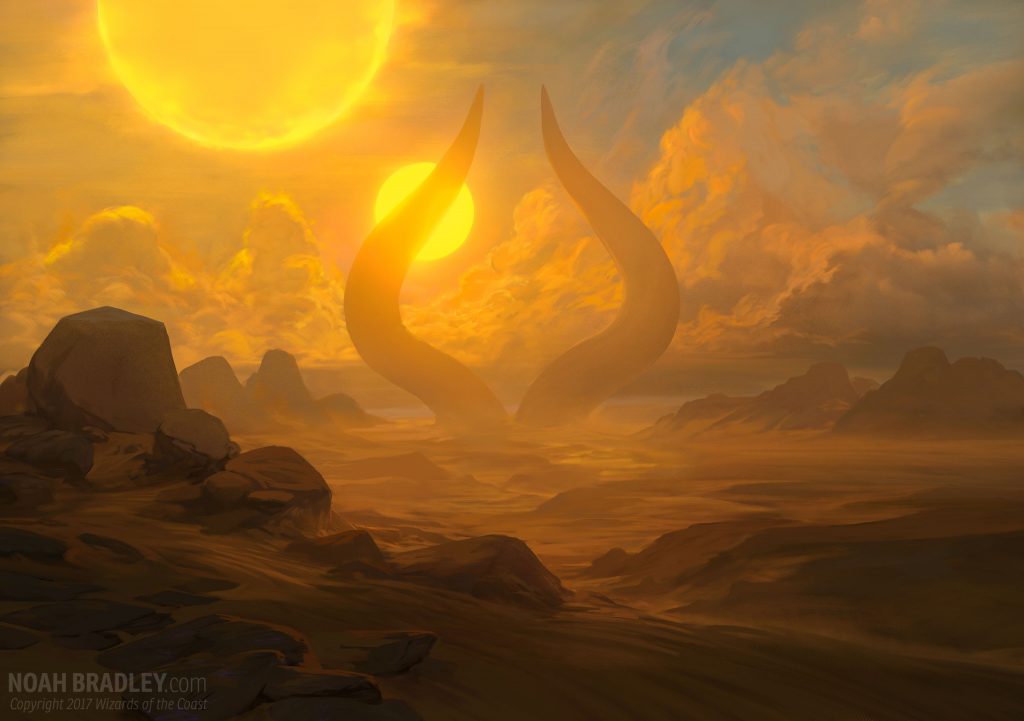
Approach of the Second Sun | Illustration by Noah Bradley
Let’s look at a recent 5-0 list that took inspiration from a challenge-winning build from a few weeks ago:
Creature (12)
Baral, Chief of Compliance
Arboreal Grazer x4
Vizier of Tumbling Sands x4
Fae of Wishes x3
Instant (2)
Galvanic Iteration
Dig Through Time
Sorcery (23)
Emergent Ultimatum x2
Bala Ged Recovery x3
Hidden Strings x4
Peer into the Abyss x2
Pore Over the Pages x4
Shimmer of Possibility x4
Sylvan Scrying x4
Enchantment (1)
Land (22)
Yavimaya Coast x4
Temple of Mystery x3
Thespian's Stage x4
Snow-Covered Forest
Lotus Field x4
Barkchannel Pathway
Blast Zone
Botanical Sanctum x4
Sideboard (15)
Anger of the Gods x2
Approach of the Second Sun
Blink of an Eye
Memory Deluge
Mystical Dispute x2
Nine Lives
Peer into the Abyss
Supreme Verdict
Thought Distortion x2
Ugin, the Spirit Dragon x2
Wilt
The Strategy
Lotus Field Combo is still one of the purest combo decks in the Pioneer format with little to no backup plan other than various combo kills. While other decks like Jeskai Ascendancy often sideboard into alternative win conditions (more about this tactic here), Lotus Field Combo opts to attack the hate cards and remain purely focused on combo-ing.
Combo Lands
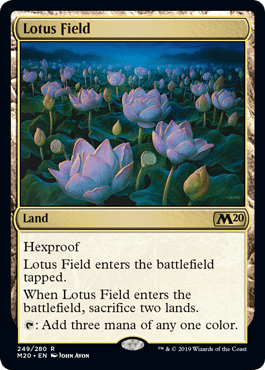
Let’s start with the namesake of the deck, Lotus Field. This land naturally trades two lands for a land that taps for three mana but enters tapped. This is the same as playing a normal land from a tempo perspective. In fact, you’d be more mana efficient just playing any untapped land the turn you play Field. So why are you building a deck around a land that isn’t even tempo positive?
What if you can untap Lotus Field for two mana? Then you have net one mana and the Field tapped for four mana that turn. What if you can untap two Fields for two mana? Now you’re accelerating well beyond the normal mana timings.
This idea of having two or more Lotus Fields in play and untapping them to generate massive mana advantages is the hallmark of this deck.
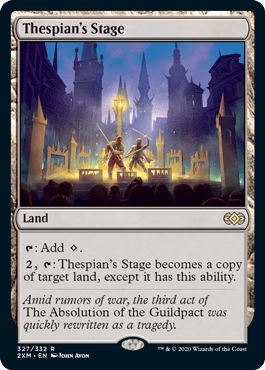
Given the need to sacrifice two lands for Lotus Field, there’s the problem of getting two Fields into play naturally. You can’t wait until turn six or seven to have two untapped Fields, so you’re going to use a different land to help you: Thespian's Stage. Once you have a Lotus Field in play, Stage can copy it to become a second one without having to sacrifice any other lands.
The ideal sequence for lands with this deck is getting a Lotus Field into play on turn 2 or 3, playing a Thespian's Stage and untapping on turn 4 or 5 with two Fields ready to kill your opponent. While many of the spells in the deck help you achieve this goal with more consistency, this powerful interaction is the fundamental purpose for this deck existing in Pioneer.
Simic Sources
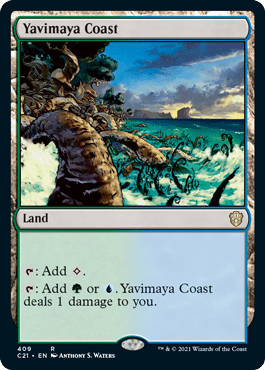
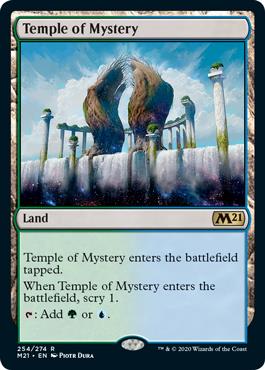
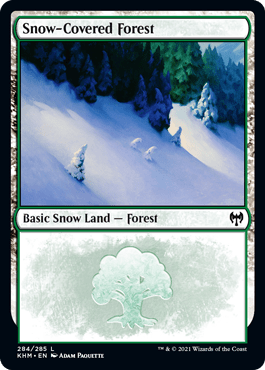
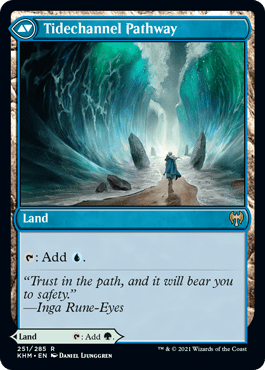
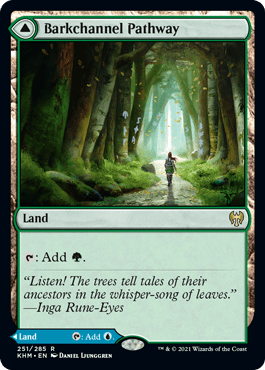
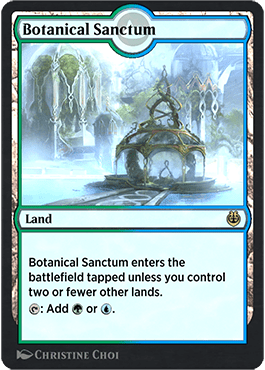
- Yavimaya Coast
- Temple of Mystery
- Snow-Covered Forest
- Tidechannel Pathway / Barkchannel Pathway
- Botanical Sanctum
While Lotus Field Combo enables a wide variety of playable cards, the base of the deck is entirely Simic (). This means that every land in the deck that produces mana needs to produce one or both of those colors. Given that you’re a combo deck trying to maximize your mana usage over the first few turns, all the lands except Temple of Mystery and Lotus Field also come into play untapped during the game’s early turns.
Utility Land
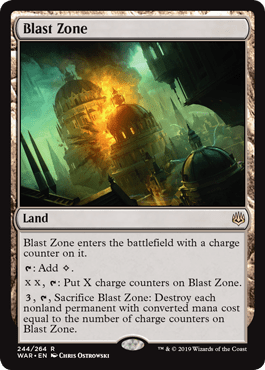
The mana base for Lotus Field Combo is uneventful outside of the single utility land in Blast Zone. Much like with Modern Dredge, this land acts as an answer to hate cards like Damping Sphere, Narset, Parter of Veils, and Deafening Silence that’s hard to interact with. It also doesn’t take up a sideboard slot, limiting your Fae of Wishes targets so you can easily answer game 1 hate cards or slow down aggressive decks like Burn.
Creature Package
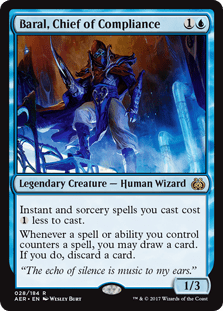
While Lotus Field Combo is a land and spell-based combo deck, you do still run some creatures for various reasons. Baral, Chief of Compliance is the lowest impact creature and some lists choose to cut that slot for a spell instead.
Much like in Storm, Baral acts to slow down aggro decks, eat removal, and potentially make combo-ing a little more efficient. I think that future builds of Lotus Field Combo will trend towards cutting Baral for another main deck interactive spell like Blink of an Eye.
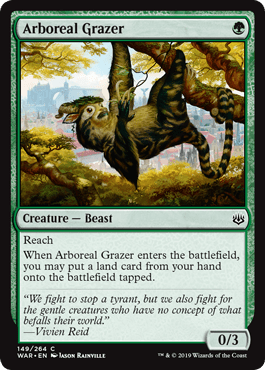
Arboreal Grazer continues to live in every land-centric deck with green mana. Accelerating your land count is important for most decks, but Grazer can help any hand combo a whole turn earlier when you need two lands in play to sacrifice for Lotus Field.
Much like other value creatures, the body on Grazer is a speedbump for aggro decks and can accelerate your gameplay while slowing your opponent down. This card is overall just a staple of all land-based decks, and Lotus Field Combo is no exception.
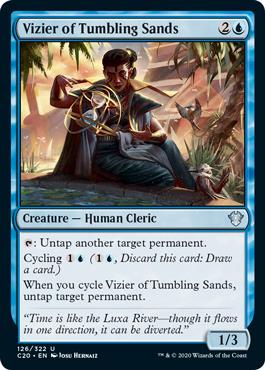
Vizier of Tumbling Sands is a creature, but the odds that you cast it as a creature are about 1000-to-1. The primary mode on this card is cycling it for two mana to draw a card and net up one mana untapping a Lotus Field. This is the first of the untap effects in the build and they’re all a part of the deck’s overall combo.
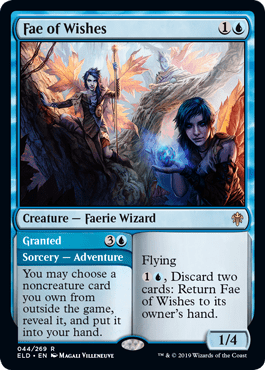
Like Vizier, Fae of Wishes’ main purpose is not as a creature, but for the adventure spell, Granted. Granted allows you to search your sideboard for a card and put it into your hand, otherwise known as a “wish” card. Wish cards allow for more flexibility by always having access to situational cards, but severely limits the number of available slots in the sideboard.
Your wish board in this deck consists of answers to problematic permanents, wrath effects, and combo cards to win with once you’ve executed your game plan. You can cast Fae as a 1/4 that forces resources out of your opponent’s hand to answer or prevent 1-toughness creatures from attacking in some aggressive matchups like Burn.
Instant Package
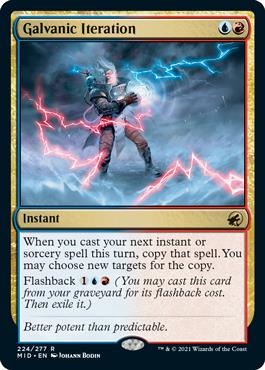
The new hotness coming from a Standard Turns deck near you. Galvanic Iteration allows for explosive turns that can get around counterspells and other forms of interaction. While the card is sometimes win-more, it singlehandedly can win the game when the copies are beneficial.
You should sideboard Iteration out in matchups where you don’t need it and you can pitch it to any discard effects for free due thanks to flashback. While this card doesn’t radically change anything about the deck, it helps in enough places to be worth including.
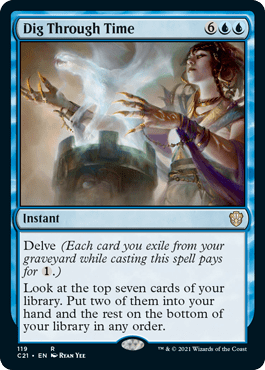
Delve cards are powerful. While most decks in Pioneer that use delve cards feature full playsets, this deck doesn’t use the graveyard well so any more than one or two delve spells start to cost full-retail, and that isn’t what you want even in a deck generating huge mana advantages.
Dig Through Time can instantly find Approach of the Second Sun again once you’ve cast it to win the game. While you may need to use it to find key combo pieces, it mostly just accelerates your ability to end the game or find interactive spells.
Sorcery Package
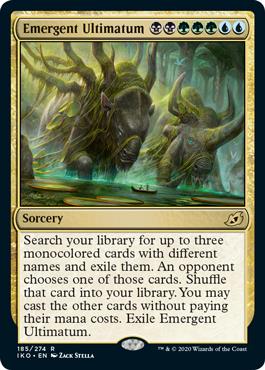
Emergent Ultimatum should end the game every time it resolves. There are a few cards that can interact with it like Deafening Silence, Roiling Vortex, and Archon of Emeria, but you can get a standard package of Pore Over the Pages, Omniscience, and Peer into the Abyss when you resolve it.
Any two of those cards should jumpstart your combo enough to end the game. While you can come up with other packages if you’ve drawn Omniscience or Peer, this standard package should be your go-to unless you have a reason to deviate.
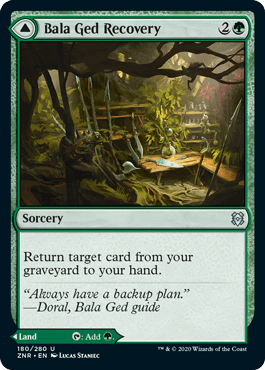
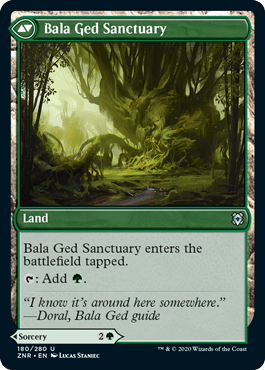
Having a high land count to ensure Lotus Field can enter the battlefield is an important element of the deckbuilding decision to have three Bala Ged Recoverys. Regrowth effects are excellent when you only need one or two cards to combo and that’s the benefit of Bala Ged in this deck.
You have Bala Ged Sanctuary when you need lands and Recovery can buy it back for one tap of Lotus Field when you need one more untap spell or combo piece.
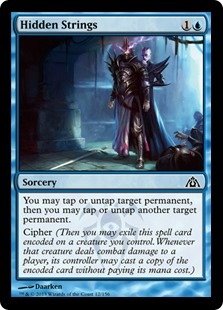
A weak card for the power level of Pioneer, Hidden Strings is the best mana generator in the deck. Strings nets four mana with two Lotus Fields. While you rarely cipher it onto a creature, having the ability to cast more copies for free in combat can easily tap out opponents. It can also tap or untap any permanent, so this card has some of the most edge-case applications in the deck even if you’re mostly using it for mana advantages.
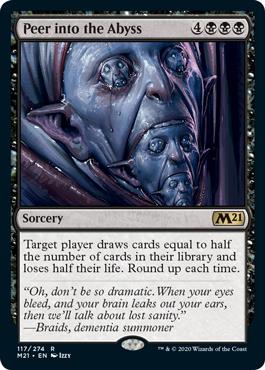
Peer into the Abyss lets you draw half your deck rounded up and costs you half your life. Like Emergent Ultimatum, you should win that turn or the next when this card resolves.
You can easily create a winning hand even if you have to discard down to seven cards. You need at least two life to cast Peer as it kills you at one life, so keep that in mind when figuring out how to block or what cards can kill you.
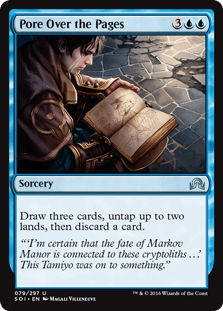
The card most players think of when they think about Lotus Field Combo, Pore Over the Pages draws three cards, discards one, and untaps two lands. That means you net one mana and draw three cards if you have two Lotus Fields.
That’s right, you gain a mana to net two cards. You’ll often chain untap effects and end the game once you can start casting Pore. There are few cards as demoralizing to sit across from in Pioneer as Pore untapping two Lotus Fields.
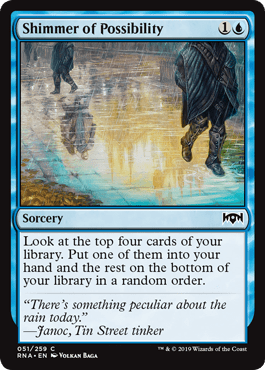
While most decks use other cards to filter and fill the graveyard, you don’t want to risk losing any keep pieces of the combo. Shimmer of Possibility lets you dig four cards deep, can take lands, and costs two mana for the turn you want to use your mana while deploying Lotus Field. This card is a perfect role player that gets around hate like Narset, and the deck would suffer immensely without it.
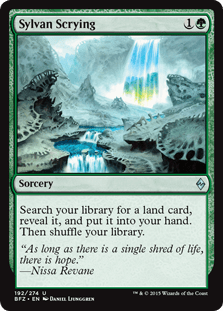
Sylvan Scrying expands the range of hands that are keepable with this deck. Scrying acts as Lotus Field or Thespian's Stage five through eight. The deck would have consistency issues finding the necessary lands to enable it without scrying. You can also cast Scrying for Blast Zone to handle problematic permanents in a pinch.
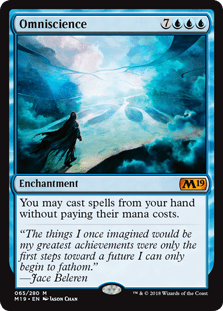
Casting all your spells for free is broken. While this deck can cast Omniscience, you’re mostly using Emergent Ultimatum to put this into play. Or you find it mid-combo when you have excess mana, so all your future spells are free.
Tips and Tricks
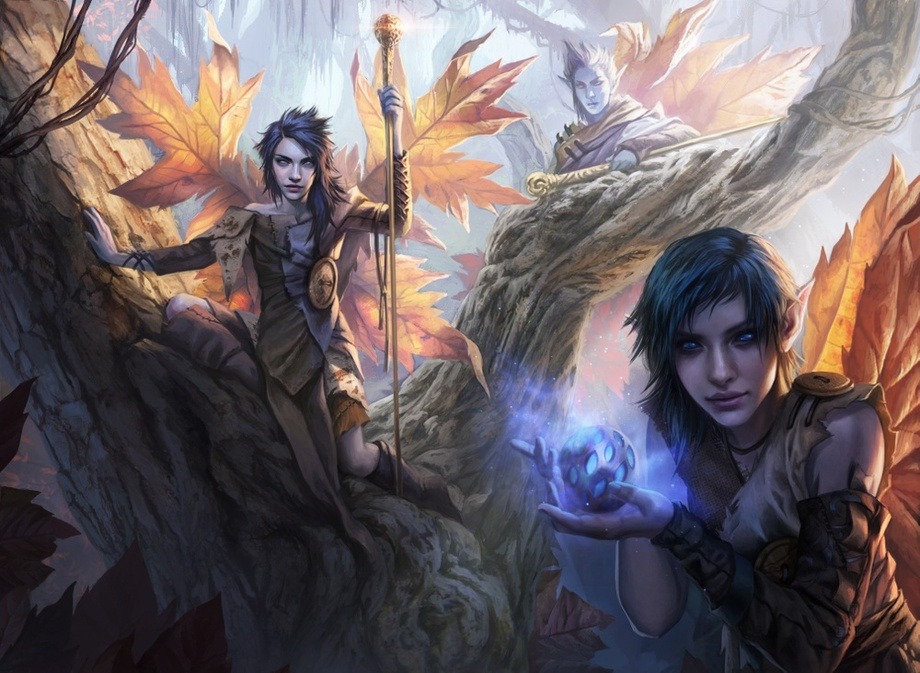
Fae of Wishes | Illustration by Magali Villeneuve
- Much like with Gifts Ungiven, consider what cards you want to get and how you’ll proceed depending which card they put back in your deck before you cast Emergent Ultimatum.
- You can use Hidden Strings to tap out your control opponents pre-combat and kill them post-combat, especially with a ciphered copy.
- Hold onto excess cards in the midgame in case you need to cast a Fae of Wishes and re-buy Granted. Especially excess lands that don’t have any beneficial effects.
- If you cast Galvanic Iteration from hand and then graveyard, your next spell will copy twice for a total of three casts.
- Don’t use Galvanic Iteration with Memory Deluge! You’ll see zero cards and draw zero from the copy.
- In matchups where your opponent has no removal, you can cast Vizier of Tumbling Sands to act as an untap every turn. But you lose the card draw off cycling, so this is often worse than just cycling instead.
- You can’t put Bala Ged Sanctuary in off Arboreal Grazer’s trigger.
- You can use untap effects to put counters on Blast Zone and sacrifice it on the same turn to entice opponents into overcommitting when they aren’t expecting you to kill their hate.
- Try to wait until you have two non-Thespian's Stage lands to sacrifice for Lotus Field. Playing Stage on turn 3 with Field and copying it on turn 4 will get you seven mana on turn 5. You can also float the two mana, sacrifice the two non-Stage lands, cast Hidden Strings, and start going off that turn with the two mana left over after copying Field with Stage. This allows you to kill on turn 4 without Arboreal Grazer.
- The deck takes many reps to play quickly. While the combo can kill quickly without interaction from the opponent, understanding how to navigate post-board games will net you the most wins and keep your clock high so you don’t accidently lose from a winning position.
Mulligan Rules
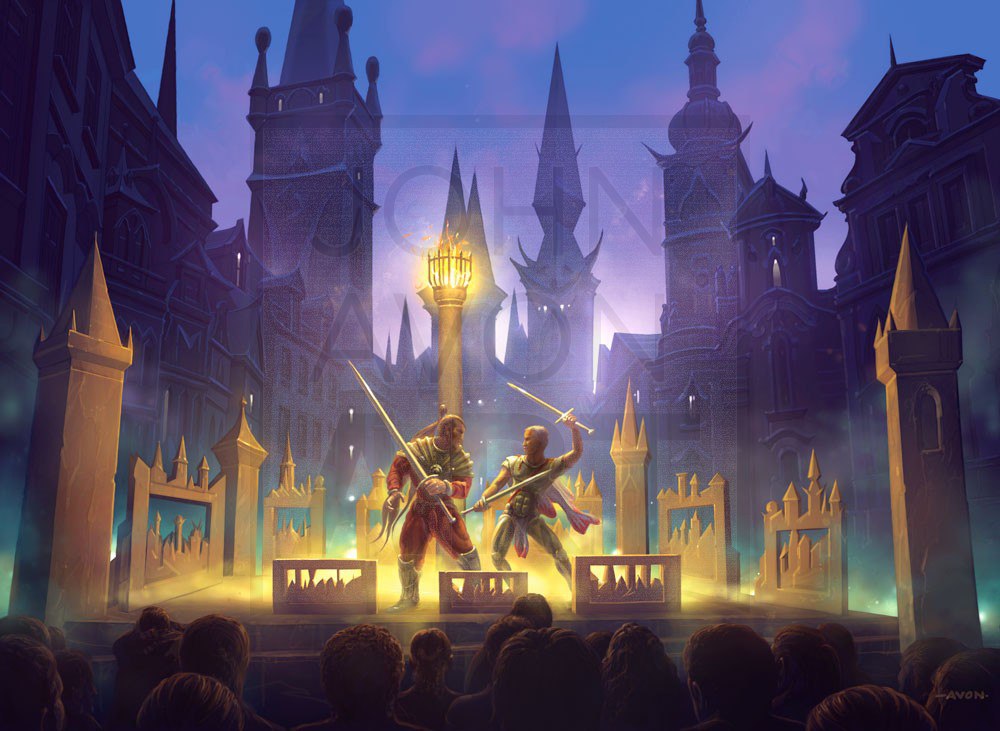
Thespian's Stage | Illustration by John Avon
- If you can’t find Lotus Field within the first three turns of the game with Sylvan Scrying or it being in your opening hand, the hand is too slow. You need a reasonable mass of cards to win, but I’ve won on mulligans to three that had two lands and a Scrying. Your biggest advantage is accelerating ahead on mana. If it takes until turn 6 for you to have six mana, you’ve lost your advantage.
- You have lots of high-cost spells. These are virtual mulligans, especially after the first copies. You’d rather have it in your deck, particularly with Omniscience especially. Don’t be afraid to mulligan and put away your top end; you have enough card draw and filtering to easily find another combo piece.
- You need to learn what decks frequently play which companions. Companions give away so much about what you’re playing against and which cards are important. You want Arboreal Grazer, Fae of Wishes, or a quick kill against Lurrus of the Dream-Den decks since your opponent is looking to end the game quickly. Against Kaheera, the Orphanguard you need to have quick mana and preferably a Fae to pressure an early Thought Distortion or Blink of an Eye for Narset, Parter of Veils.
- You’re the linear combo deck. While you can play the role of a control deck, that’s never your main gameplan, even post-board. You need to look for a better hand if it doesn’t have a proactive plan to win the game or assemble the pieces to win.
Sideboard Guide
I’ve broken up the sideboard into three sections: the general sideboard cards that come in like a normal sideboard in specific situations, the wish board that are exclusively to fetch with Fae of Wishes and never come in as actual sideboard cards, and cards that can do either depending on the matchup.
General Sideboard
Anger of the Gods
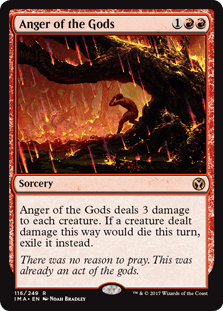
Anger of the Gods is your primary sweeper against the aggressive decks. With the amount of recursion in aggro decks plus the cheap cost of threats in Pioneer, three mana and three damage is the sweet spot for a wrath.
The other major point in favor of Anger is that it costs a single Lotus Field tap, which can allow you to cast it without needed to spend any untapping resources, especially in matchups against Archon of Emeria.
Memory Deluge
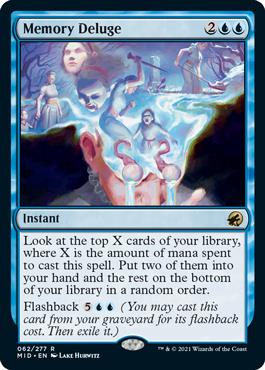
Memory Deluge is a great upgrade for this deck. where you quickly can filter through your deck without drawing cards. Especially against discard and control decks, Deluge allows you to use your mana advantage without having hand disruption, Narset, or a single counterspell stop your game plan. If there was one card that should pick up copies in this deck, this is one of the first for me.
Mystical Dispute
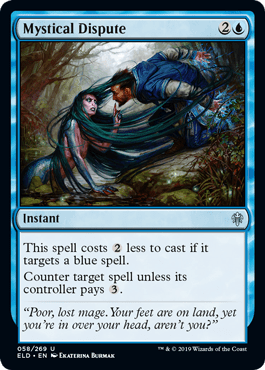
Does your deck have blue? Does it cast spells? If you answered yes to these questions then Mystical Dispute is for you.
Interacting with a large portion of the format, especially control decks or counterspells brought in to target your combo, means Dispute can force through your combos or slow down opponent’s from closing out the game long enough for you to rebuild.
Wish Board
Approach of the Second Sun

Approach of the Second Sun is the deck’s primary win condition. Once you’ve cast both Peer into the Abyss and Pore over the Pages and put Omniscience into play, Fae of Wishes can grab Approach. Once you cast it, you can Dig Through Time or Shimmer of Possibility twice to find it again, winning the game on the second cast.
But make sure to cast Approach from your hand! If you cast it with Emergent Ultimatum it doesn’t win the game on the second cast.
Nine Lives
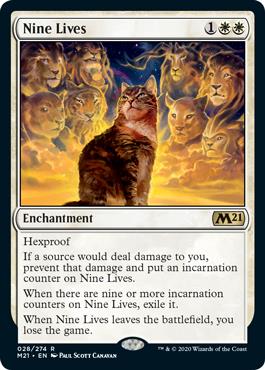
Like Phyrexian Unlife in Ad Naus, Nine Lives buys seemingly infinite time against aggressive decks. Unless your opponent has Ugin, the Spirit Dragon, Back to Nature, or something equally unlikely, you’re safe for several turns thanks to the card’s hexproof ability.
Peer into the Abyss

Why have a copy of your combo card in the sideboard? In case of Slaughter Games or similar effects. Peer into the Abyss also costs seven mana, and while you do regularly cheat on mana with this deck, having two Emergent Ultimatums, two Peer into the Abyss’, one Omniscience, and a Dig Through Time in your main deck can cause enough issues without adding another high-cost card to the mix.
Supreme Verdict
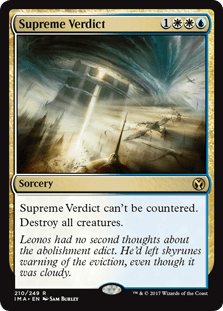
See Anger of the Gods, but Supreme Verdict also hits creatures with toughness greater than three and can’t be countered against aggro control decks or decks boarding in interaction against you. I never really bring Verdict in since your best plan against aggro is Anger or combo-ing faster than they can kill you. That said, Verdict can be a situationally better option, especially against larger green decks.
Both Side and Wish Board
Blink of an Eye
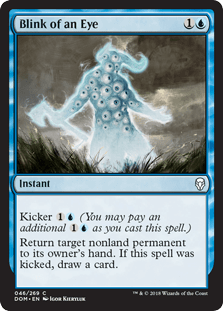
Do you need to answer a single hate card? Here’s your answer. Blink of an Eye hits them all.
Narset, Parter of Veils? Archon of Emeria? Damping Sphere? Deafening Silence? They all get bounced end step or main phase and let you combo off. Drawing a card is a nice bonus, but Blink usually sets up the turn you plan to go off and one card rarely makes the difference in a deck that can draw half its deck, but it can!
I don’t mind boarding in Blink in matchups where I suspect Fae will have difficulty resolving but I still need access to it at some point, like against Azorius () Control.
Thought Distortion
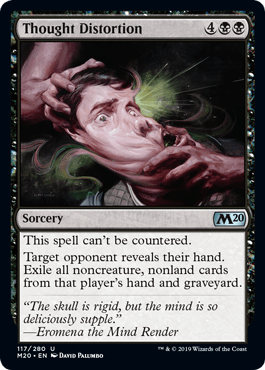
Your control opponent has six cards in hand and five mana untapped. You tap two Lotus Fields and suddenly they have one land in hand and you’re primed to win the game. Against decks with interaction, Thought Distortion breaks your opponent’s will to continue playing.
Some players have started playing Narset's Reversal which is an Uno reverse card that periodically destroys you. If Reversal picks up steam, consider when to use Distortion much more carefully.
Wilt
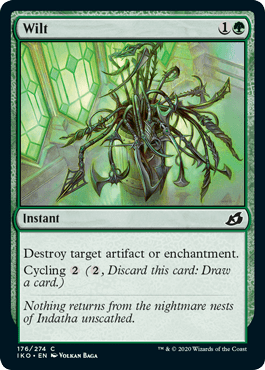
Wilt is a narrower Blink of an Eye that can cycle if your opponent never draws their important hate cards. You want to board Wilt in against decks you presume won’t let Fae of Wishes resolve and you need to answer a card like Deafening Silence. You also want to bring in Wilt and cycle it if you don’t need it if there are important cards like Esika's Chariot you can interact with.
Ugin, the Spirit Dragon
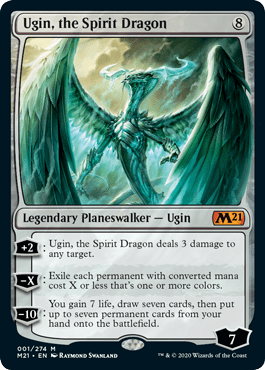
Ugin, the Spirit Dragon can do a great Supreme Verdict impression while also sweeping other non-creature permanents. Against some decks like Selesnya () Company, hitting the creatures that outsize Anger of the Gods, the enchantments that disrupt your combo, and leaving a threat over afterwards can end the game by itself.
In matches where the game goes long, Ugin is a decent plan as an additional threat that many decks don’t have answers for post-board. You’ll rarely get Ugin as a wish target, but it occasionally works well at sweeping boards and planeswalkers in one go.
How to Beat Lotus Field Combo
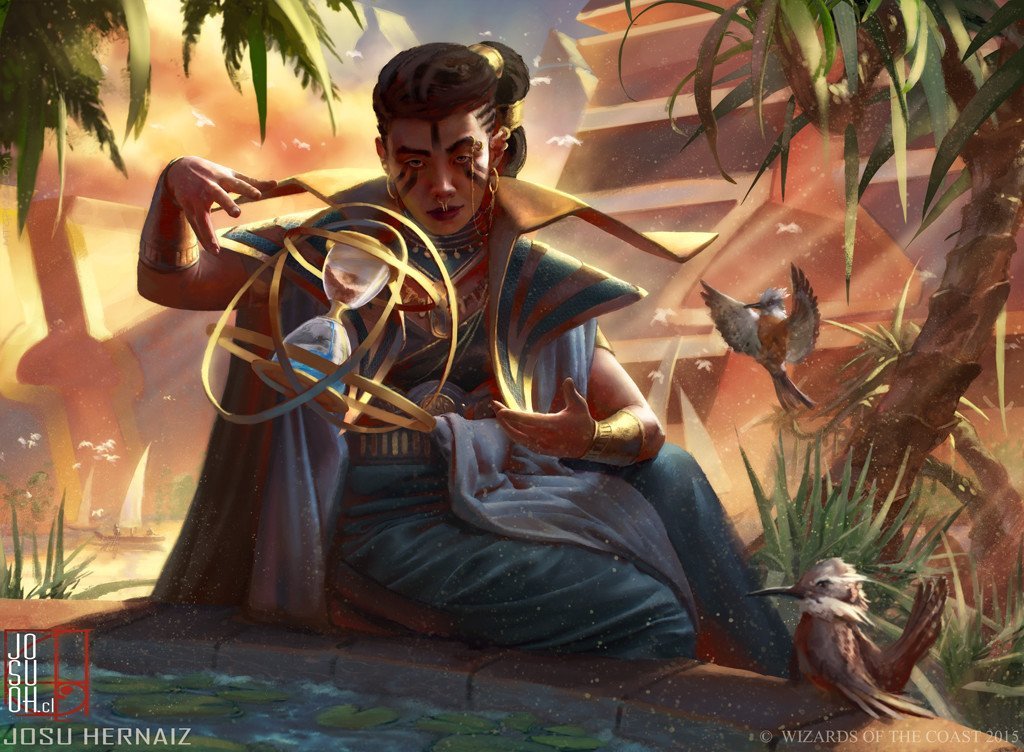
Vizier of Tumbling Sands | Illustration by Josu Hernaiz
- Targeted burn quickly closes the game and can’t be stopped by high toughness creatures. Given that Peer into the Abyss requires you to have two or more life, cards like Boros Charm can easily end the game too quickly for Lotus Field Combo.
- Similarly, cards like Roiling Vortex, Narset, Parter of Veils, Deafening Silence, and Archon of Emeria backed up with pressure can easily disrupt Lotus Field Combo.
- Hand disruption can slow Lotus Field Combo down but you’re better off attacking with a quick clock rather than hand disruption given the primary card you need to strip from the hand is a land.
- Tax effects like Thalia, Guardian of Thraben or Elite Spellbinder can be effective with enough pressure, but they won’t be effective enough alone since neither card stops Lotus Field or Thespian's Stage.
- Narset's Reversal from control decks can bury your entire sideboard plan of Thought Distortion.
Honorable Mentions
Given how Lotus Field Combo works, any card of one color that costs three or less can be a reasonable consideration for the deck. Adjusting the numbers on certain effects can help, but you can generally justify most niche cards that meaningfully interact with powerful cards in the Pioneer format.
My top three cards to consider are
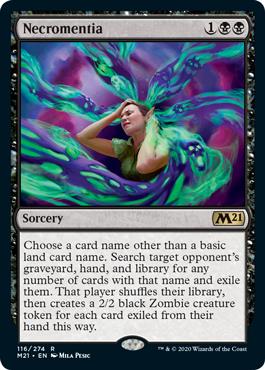
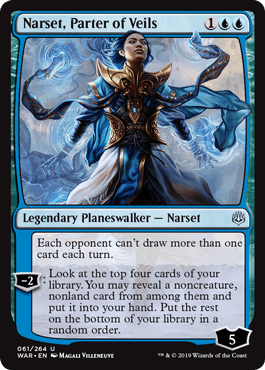
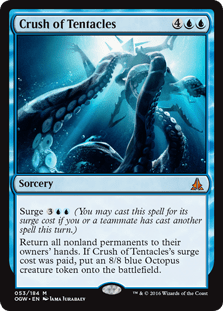
Wrap Up
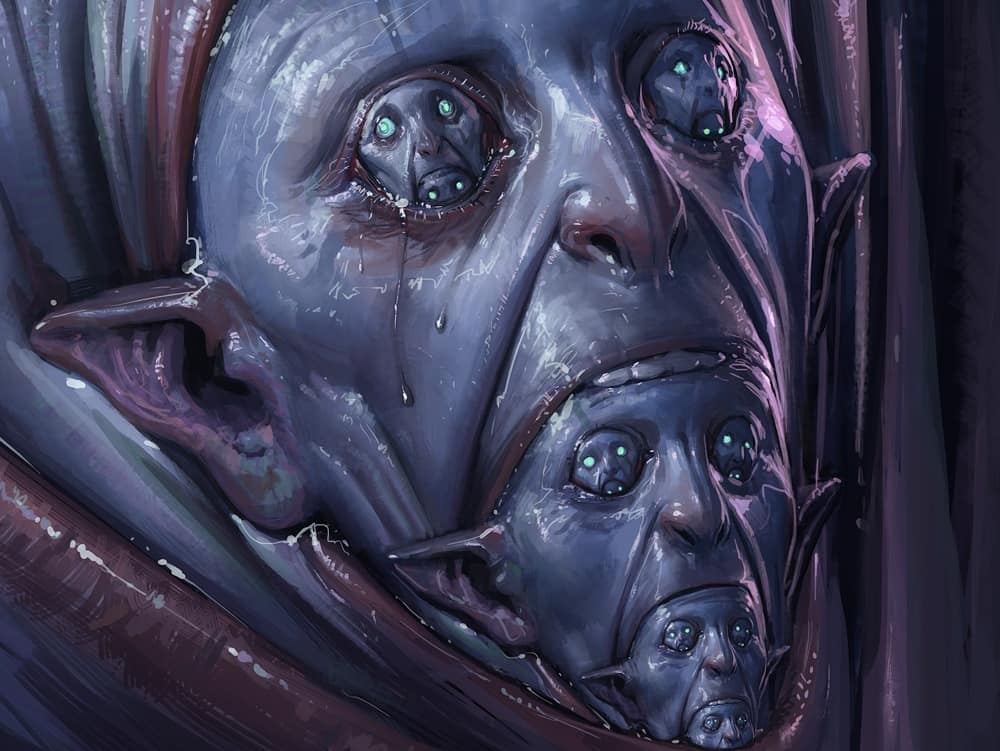
Peer into the Abyss | Illustration by Izzy
Pioneer constantly evolves, and while we’ve seen the power of linear combo decks wax and wane in the past, Lotus Field Combo continues to keep the format honest. Midrange decks like Niv to Light would have less predators and could tailor their game plan to beat the aggro decks out of the format without decks like Lotus Field Combo.
While I understand that combo decks can be frustrating to deal with, most have the tools to beat Lotus Field Combo if you’re willing to commit sideboard slots for the deck and apply pressure early. Especially going into Showcase weekend for Pioneer, I’d expect a fair amount of Lotus Field Combo skewed to attack Naya Winota, Phoenix, and the slower aggressive decks leveraging Thalia, Guardian of Thraben or Collected Company.
With that, I hope you have enjoyed this deck guide on Lotus Field Combo! Let me know what you think of Pioneer’s premier linear combo deck down below and if you think Lotus Field Combo is worthwhile for Pioneer. And be sure to check out Draftsim’s Twitter and the blog for other deck guides.
That’s all from me for now. Stay safe, stay healthy, and I’ll see you in the next one!
Follow Draftsim for awesome articles and set updates: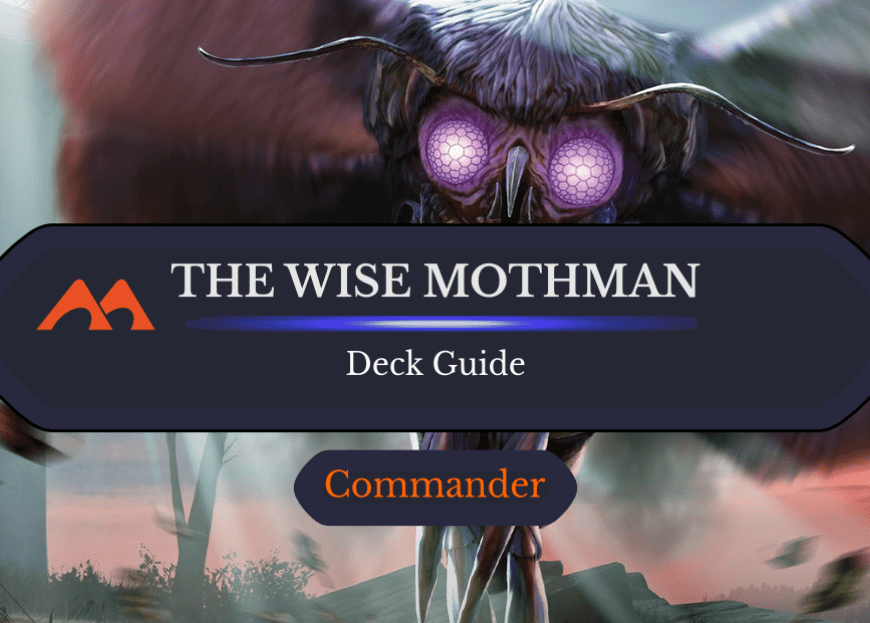
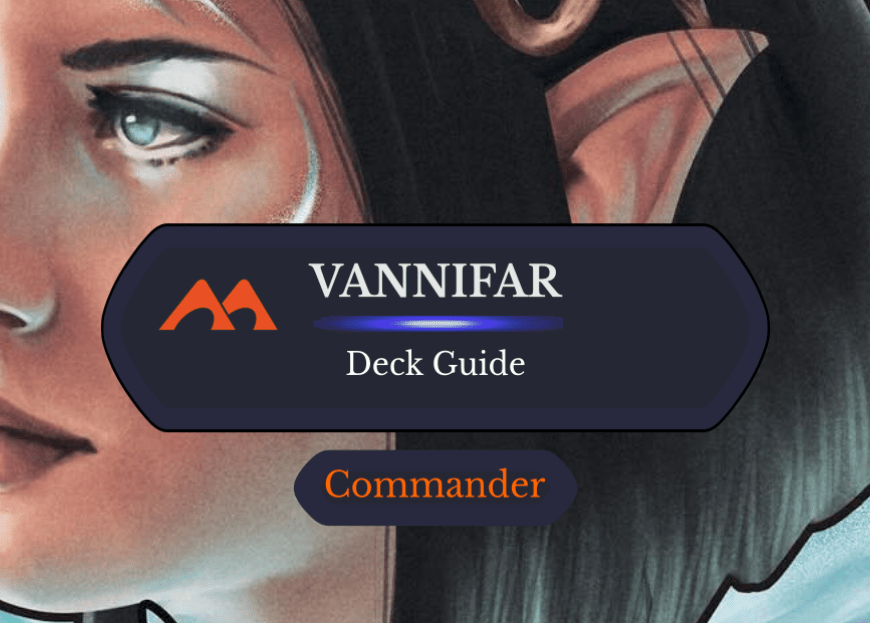
4 Comments
Great article. I would like to know how to battle against naya winota, specific side tips for this deck, given the speed of filling the winota table, in addition to cards that limit the number of non-creature conjurations. this is the deck I have the hardest matchup
Thanks for the kind words! For the Winota match-up, make sure you board in your wraths and try to combo as quickly as possible. They can kill quickly, but often have a hard time dealing the full 20 before turn 4 or 5, you should be able to combo before then. Prioritize hands with cards like Grazer or Anger of the Gods to slow them down without delaying your gameplan. You want to keep hands that can combo on turn 4 or 5, hopefully with a little interaction for their minimal disruption. It can be tough, but you’re both somewhat linear combo decks. They need the combat step though. Hope that helps!
Excellent guide, thank you for the clear explanation of everything. I have a question about winning in the same turn you copy lotus field with stage, I don’t know how you get enough mana to copy the stage, cast hidden strings and cast all your combo. Thank you again for the post
What kind of cards are boarded out usually? I haven’t played too many combo decks, but I understand it’s easy to dilute your deck. I would guess Arboreal grazer vs control, but outside of that I am unsure.
Add Comment